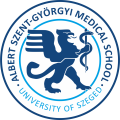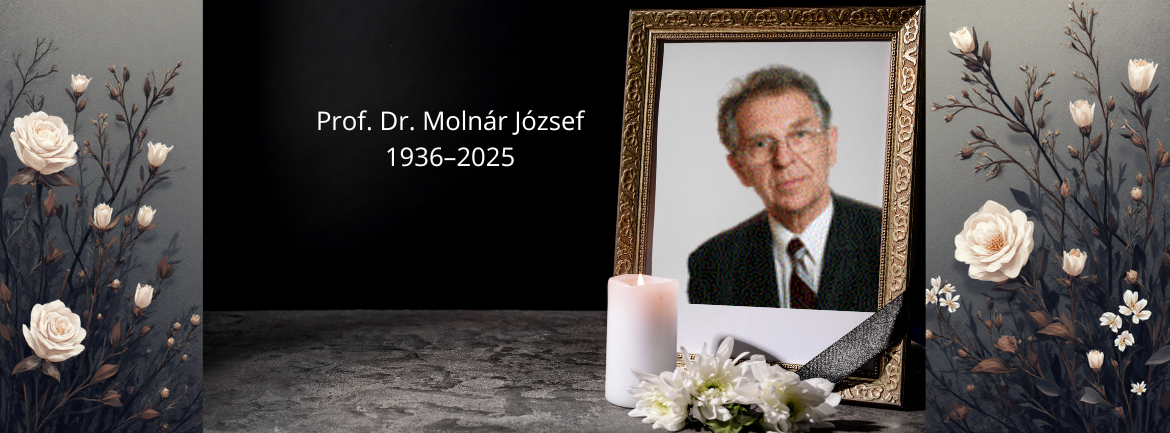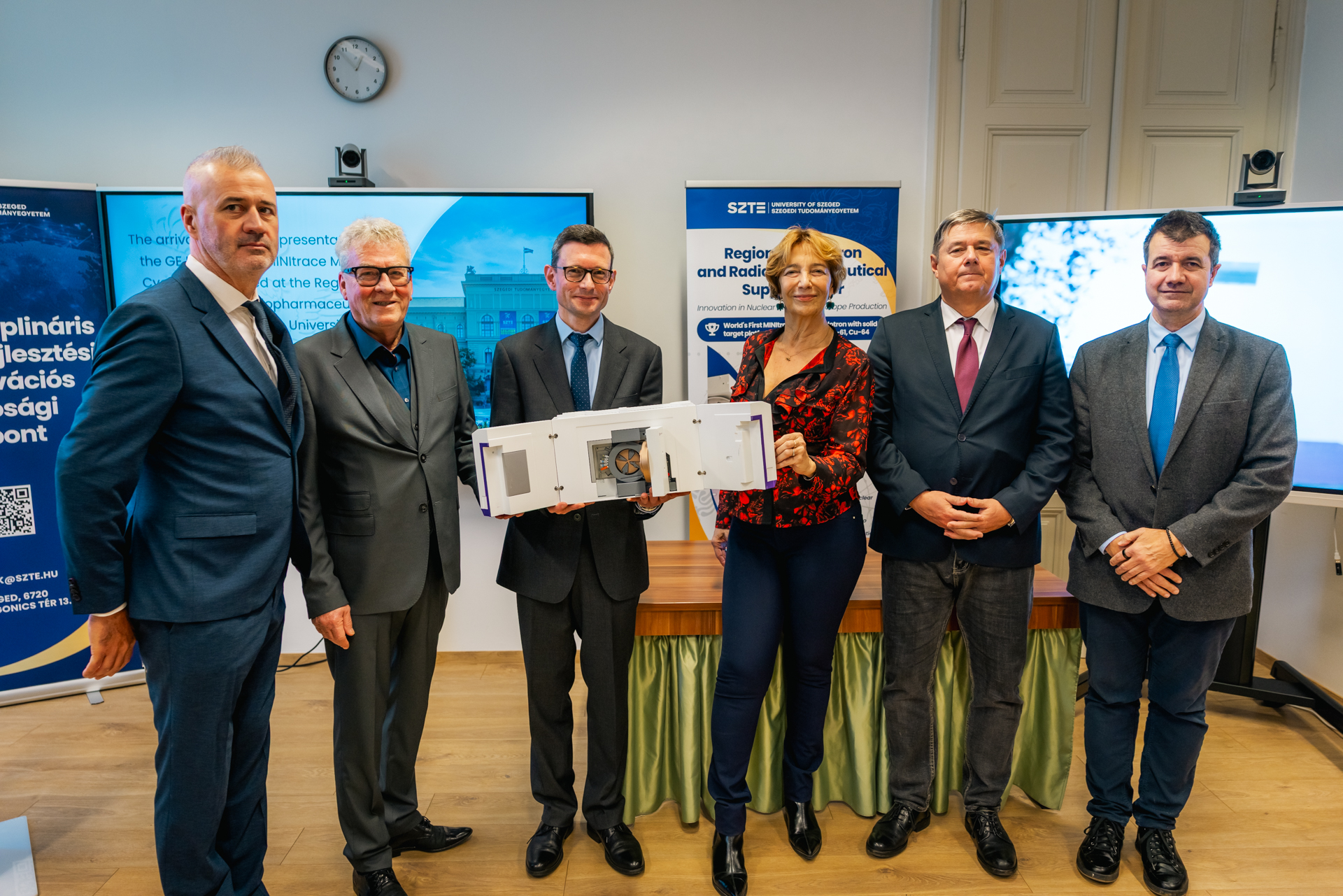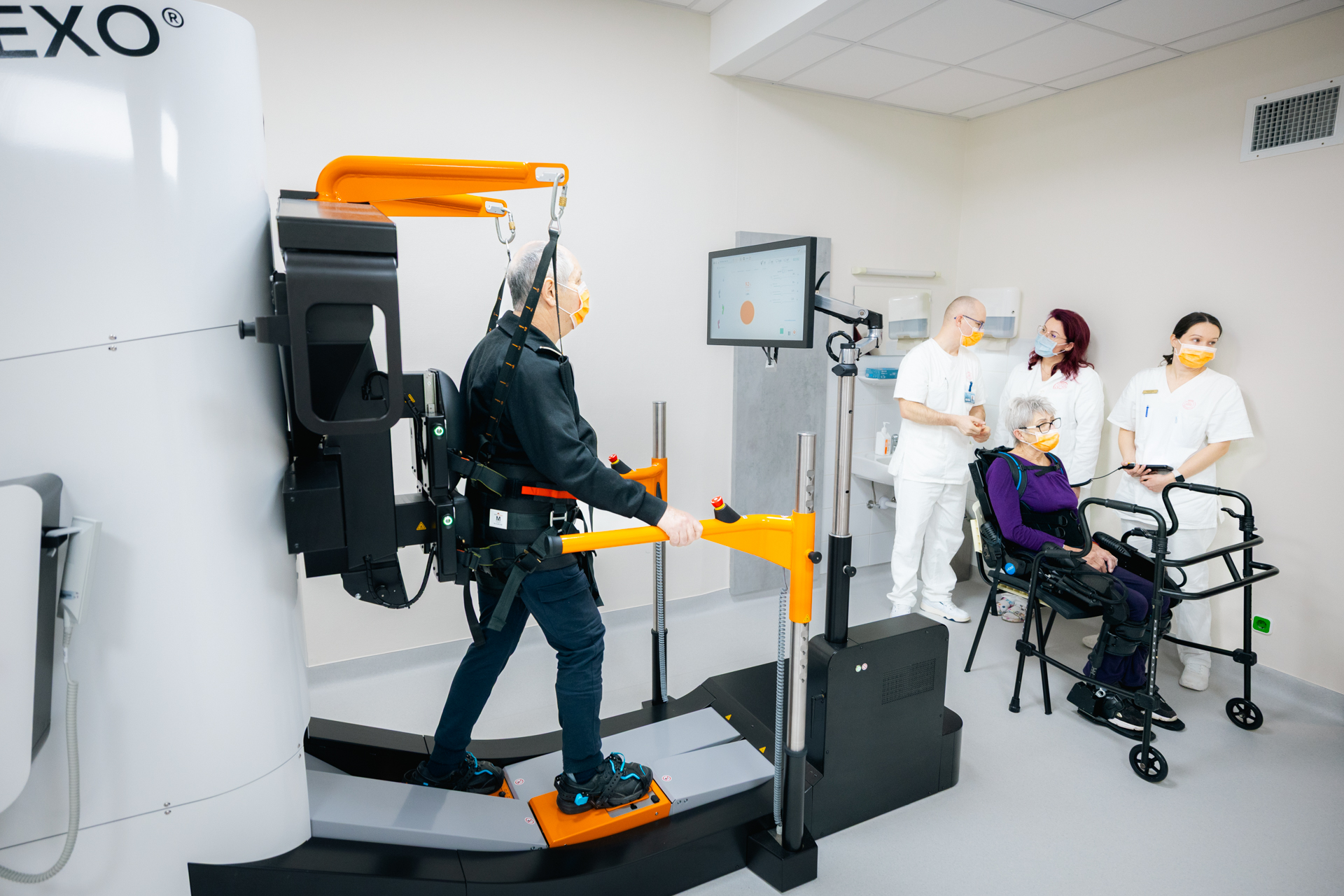University of Szeged
Albert Szent-Györgyi Medical School
Foreign Students' Secretariat
Your Education. Our Mission.

Unique Cardiometabolic Rehabilitation Unit assists heart and diabetes patients in Szeged
A new dimension of health care has been introduced at the Cardiometabolic Rehabilitation Unit of the Albert Szent-Györgyi Clinical Centre, University of Szeged. The new and innovative approach to patient care, which is unique in Europe as well, is based on remote patient monitoring with telehealth systems.
The aim of the new program is to prevent overall health deterioration in certain chronic health conditions, such as heart disease and diabetes as effectively as possible, improve health outcomes, as well as develop a new approach to treating the potential complications that develop. In addition to educating patients about the disease and its treatment, the health care professionals of the unit also teach them how to use telemedicine devices (heart rate monitors, food diaries, blood pressure and blood glucose monitors, weight scales) and then apply the data gained from these devices to assist with rehabilitation in their own home environment for min. 3 months.

The primary mission of the unit is to provide quality secondary and tertiary prevention, thereby reducing the risk of serious complications. The new approach is based on the realisation that lifestyle habits fixed over decades can rarely be altered merely by a few minute consultation. Much more time is needed for patients to understand what habits have led to the development of their current condition and what they need to do themselves in order to minimise further harm. At the same time, the healthcare system has a responsibility to support patients outside the doctor's surgery for several months or longer, in their own homes.

The unit started its new type of operation earlier in 2023. Taking into account care needs, the 15-bed unit has developed an exemplary service system that supports patients' lifestyle changes in their own home environment for a minimum of 3 months. Instead of the classic inpatient care of 3 weeks, patients spend only 5 days in hospital, then their condition is monitored with digital medical devices based on mobile and IT systems. This way almost 100 patients can be followed up at the same time.

During their one-week stay in the ward, patients master an adapted version of a health education curriculum widely used in Germany, and they are also taught how to use heart rate monitors, food diaries, blood glucose and blood pressure monitors, as well as interpret the data. Patient independence is supported by remote review and consultation. The program relies on the services of the InClouded Telemedicine System, previously established at the University of Szeged. The home care is mainly provided by physiotherapists, dieticians, diabetes educators, under the supervision of cardiologists, internists, endocrinologists, psychologists and pharmacists.

The new telehealth system is unique not only at a national level but also in Europe, which is well illustrated by the fact that the service plan was evaluated and recommended for implementation by a consortium of Spanish, Portuguese, Italian, German and Swiss experts in the framework of the previous European Union Horizon grant.






